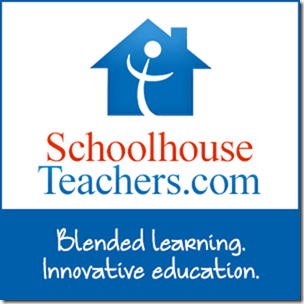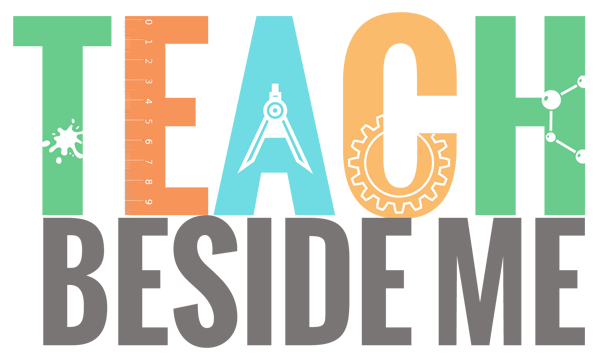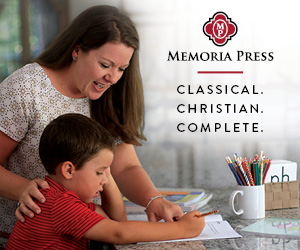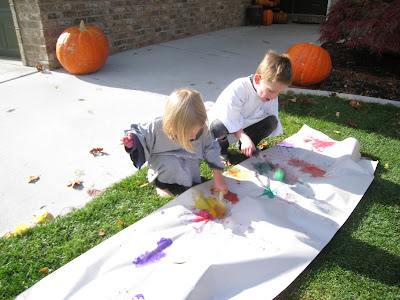Homeschool Methods and Styles Explained
This post may contain affiliate links.
Today I want to explain Homeschool Methods to you. You will hear a lot about this term when you begin homeschooling. A homeschool method is just the style of homeschooling you choose to do.

I remember when I was just starting to research homeschooling I quickly became overwhelmed. This post is to help you learn a little about some of the different methods of traditional homeschooling and some of the homeschooling styles. I’ll also share where you can find more info on each of them.
You don’t have to choose one style or method of homeschooling. Don’t feel pressured to do that! Just find what feels right for you and your family, or take a little of the good from each, like I tend to do! You may also find that you evolve in your style of homeschooling as the years go on.
Homeschool Methods Explained:
Charlotte Mason Homeschool Method:
Charlotte Mason was a British educator in the late 1800’s whose teaching methods included using “living books”(written by someone with a passion about the subject) instead of textbooks, narration, short lessons, the development of good habits, and the study of art, nature study, and poetry.
One of her mottoes was “Education is an atmosphere, a discipline, a life.” This kind of approach is gentle and flexible, yet still the parent guides the learning process.
You can check out Ambleside Online or Simply Charlotte Mason, to get more of an idea of what the Charlotte Mason homeschooling method is all about.
Ambleside has a free curriculum guide & outline with book lists, artist, and music study ideas. It is a WONDERFUL resource! I use it a lot for book ideas. I use a lot of ideas from the Charlotte Mason method in my homeschool. I really love her philosophy.
Unschooling Homeschool Method:
In the unschooling homeschool approach, also called child-led learning, the parent offers support, resources and encouragement, and the child leads the way in learning. They learn at their own pace.
In this homeschool method, the belief is that the child will learn best if he is interested and self-motivated. Because the student sets the pace for learning, he may learn things at a later date than the traditional scope and sequence would suggest. However, when a child is ready to learn and motivated, he may very very well be able to catch up and move quickly beyond others his age.
Unschooling is great for parents who want their kids to follow their own interests and not be tied down to routine and structure. You just create a rich learning environment.

A good book on this topic: The Unschooling Handbook by Mary Griffith. It has been quite a few years since I read this, but I do remember enjoying parts of it.
See this post about Unschooling.
Unit Studies Homeschooling Method:
Unit studies focus learning around one topic for a certain period of time- for instance you may choose to learn about Space- you will focus your reading, writing, history, science, math, etc, all around this theme for a week or more depending on how long you choose to do the unit.
In the unit study method, the student is able to make connections between these different subjects and learn the material well. It also helps the teacher not have to prepare as many distinct lessons.
Some unit studies are arranged such that different ages of students can study the same material at different levels. Students may also remember information better than in some methods, thereby minimizing how much reviewing you have to do.
You can create your own unit studies, but there are lots of great ones already produced online- some free some not. Five In a Row is a Unit Study Curriculum that I have heard great things about. Here are some free ones from The Homeschool Mom. Also Amanda Bennett sells some wonderful unit studies, as well as CurrClick (they also have lots of free stuff on their site).
See my post about Unit Studies Homeschooling.
Classical Homeschooling Method:
This method is based on the philosophy of education used in ancient Greece and in Europe during the Middle Ages. Classical education is a rigorous style of education that views education in three phases. These stages correspond to the development of a child’s ability to reason. Also known as the Trivium.
The first stage, grammar stage, is when the student learns how to learn and has the ability to memorize many facts. The second stage, logic stage, is when connections are made of the facts already learned. The third phase, rhetoric stage, is when the student is able to use the connections of facts and formulate and articulate his own opinions.
Grammar, logic and rhetoric are all important components of the Classical method, as is Latin, usually.
This style has a lot of structure and is very academically focused. I pull some from this method as well.
I am planning on using a lot of the curriculum from Memoria Press this year which is a classical-based curriculum. See my Memoria Press Review Here.

Also Susan Wise Bauer has written some great books- The Well-Trained Mind is excellent!
See this post to learn more about Classical Homeschooling.
TJEd, Or Thomas Jefferson Education Method
This is a philosophy based on the books by Oliver and Rachel DeMille, the first titled A Thomas Jefferson Education. This is another philosophy that I have studied a lot and really try to focus on when I need inspiration.

TJEd also focuses on these phases of learning:
- Core (birth to 8 years of age): good and bad, relationships, family values, routines and the value and love of work.
- Love of Learning (about 8 to 12 years of age): family reading of classic literature, project learning, clubs, inspiring the kids to love learning and learn a variety of subjects.
- Scholar (approximately 12 to 18 years of age): students study long hours and work with a mentor to refine their academic skills—the emphasis placed a personalized approach to studies.
- Depth, Mission and Impact Phases follow in the older/adult years.
Distance Learning/ Online Homeschooling:

This homeschool method is pretty obvious. There are many websites that offer a full online homeschool curriculum. There are lots of options for online learning here are a few that I am aware of: K-12, Time-4-Learning, Schoolhouse Teachers (read my review!), Compass Learning. We have used Schoolhouse Teachers, Time-4-Learning, and K-12 in the past. I am happy to answer any questions about either of those.
School-at-Home Approach:
This home schooling method bases its model on the traditional idea of a classroom school, with workbooks and textbooks. Learning is usually laid out in a clear scope and sequence.
Children are studying material in a similar scope and sequence as other public or private schools. Typically home is set up like a classroom and with the same styles and routines as a traditional school with tests and quizzes, workbooks, and textbooks.
Eclectic Homeschooling Method:
Like the name implies, in this method the parent employs a variety of home school methods depending on the needs of the child. Rather than stick with a single philosophy or method, parents who choose this method tend to take a bit from many sources.
I would say that my family definitely falls into this category. I have read and loved books on all kinds of philosophies and feel I take little bits away from each of them making different parts fit for our family.
Each child learns differently and things need to be catered to them individually. That is one of the joys of homeschooling. When something doesn’t quite work, you find something that does.
How We Homeschool:
-
- I love the “Living Books” from Charlotte Mason as well as the art, nature & music study ideas
- The freedom of Unschooling- filling my house with educational items & letting the kids explore them & learn from them
- The routine & studying of ancient classics from Classical
- The theme of “Inspire, not Require and structuring time, not content, as well as the phases of learning from TJEd
- Centering all studies on one theme from Unit Studies- I often try this in an informal way in our homeschool
- The variety from Distance Learning- sometimes we just need a change of scenery or routine & these kind of programs help us out!
- I love hands-on activities that excite and inspire my children.
More Homeschool Content:
How to Choose a Homeschool Curriculum
How to Tackle Homeschool Planning
How to Homeschool in 10 Easy Steps
See Inside: Homeschool Room Ideas








I think it’s great that you post different ways to homeschool..there is no right or wrong way. Whatever is right for your family. We do online-learning…I like something that is more organized and it works well for us.
Great job!
We are definetly electic!
clarksrfun at gmail dot com
I am using the Well Trained Mind but am kind of eclectic I think
thanks for the chance to own these!
Would be great to win something. I’m so grateful for the blogs I’m stumbling upon because of the giveaway. There’s just so much good info out there.
Ilive classical conversations but we are still pretty eclectic at this time. But I’m moving towards a more classical model.
Bless you for such a wonderful package giveaway! We need these things so badly. We use anything we can get that is low cost or free. Thanks!
We are eclectic.
We are eclectic
Thank you for offering these as a giveaway!
Oh, and I’m still trying to figure out what I am as far as homeschool style!
I am new so I am still a bit traditional in lessons and planning.
I am so eclectic it is not funny … I love using a variety of approaches including Charlotte Mason, Montessori, and Classical. Thank you. God bless, Tracey M.
My son loves learning about the way things used to be, these would be a great addition to our year.
We are eclectic, using a curriculum based on Charlotte Mason, Unit Studies, Montessori. 🙂
We are ‘want to be Charlotte Masoners’ in philosophy, but more unschoolers in practice.
I have an eclectic approach to homeschooling, thanks for the opportunity
We are pretty much eclectic. Leaning towards unschooling in freedom with extras but needing to buckle down a little with the basics.
We are currently classical homeschoolers. We started classical, changed to unschoolers, changed to Charlotte Mason, and came back to classical.
eclectic
I’m very new to homeschooling and am not entirely sure what style we have as homeschoolers 🙂 but i love to pick and choose what works for our family! so many great printables and info available~
Eclectic!!
I’m very eclectic with a Charlotte Mason flavor.
I’m a bit eclectic- and I’m still figuring it out– I like TJEd, I also like the little bit I know of Charlotte Mason, as far as exposing my kids to things rather than handing them textbooks but I like the idea of unit studies, in a relaxed un-school kind of way- we don’t need piles of assignments and busywork!
We use the Charlotte Mason Method with some tradional schooling thrown in. This old math teacher just can’t seem to completely leave testing behind 😉
We’re literature-rich eclectic with some Charlotte Mason, unit studies, and Montessori mixed in.
We’re very eclectic and love getting new ideas for materials. Thanks for the giveaway!
We are definitely in the eclectic camp with CM leanings and a bit of classical thrown in.
We use the Charlotte Mason/living book method for creating an atmosphere of learning at home.
We are very eclectic… We use a textbook base, with a heavy emphasis on classic literature, and unit studies to supplement family interests.
Eclectic
We are very eclectic. we do a lot of reading, unit studies and hand on stuff.
I home school using Horizons, Apologia and Charlotte Mason. Lots of hands on learning and reading!
Thank you.
We are trying classical education homeschooling.
I just heard about the books on this site recently!! I hope I win.
We are an electric blend, A Beka ,Apologia,Horizons, a lot of hands on– This is only my true second year, even though I basically have been teach them for more than 30 years.
We are just starting to homeschool, but I know that it’s going to be very eclectic.
Extremely eclectic – we switch things up at least every week… 🙂
We are eclectic with a slant towards classical.
I am eclectic.
homelearninglove@gmail.com
We are Charlotte Mason homeschoolers with a bit of Classical thrown in.
We are going to try the CM approach this year.
This will be my 3rd year homeschooling. I would have to call the method of the first year “What am I doing?” while trying to loosely follow Classical from Well Trained Mind. LOL. The second year was much closer to WTM and this year I’m continuing what has worked for us so far while adding in some Charlotte Mason elements. I’m really looking forward to it! CM has some very interesting ideas. 🙂
Our method is Deut 6. Live and learn.